The Empty Chairs event took place in Kyiv, where journalists held captive by russia were remembered.
The human rights action Empty Chairs was held on Sofiyivska Ploshcha Square in Kyiv in support of journalists, writers, cultural figures, and human rights defenders who are in russian captivity, convicted by russian courts, or missing. The action was organized by the PEN Ukraine Center and the Center for Civil Liberties.
On the initiative of PEN International, since the end of the 1980s, every year on November 15, the world celebrates the Day of the Imprisoned Writer or the Empty Chairs Day. The empty chairs at human rights rallies around the world today have become a symbol of the authors wrongfully affected who cannot be with us due to imprisonment, persecution, disappearance, or murder.
“The majority of prisoners of war and civilian prisoners are currently in a state of incommunicado in the territory of the russian federation and the temporarily occupied territories. These people are in a complete information vacuum. As of today alone, 1,700 civilians have been confirmed to be in detention in the territory of the russian federation. These are the ones whose names we know. At the same time, the majority are people whose names we do not know yet,” noted Nataliya Yashchuk, senior manager of the Center for Civil Liberties‘ Department of Overcoming the Consequences of War. She recalled that on October 2, the Parliamentary Assembly of the Council of Europe unanimously adopted a resolution calling for the release of all Ukrainians from russian captivity and demanding that the russian federation comply with the provisions of international humanitarian law. The preamble of the resolution states that as of September 18, 2024, a total of 65,956 servicemen and civilians are registered as missing or captured.
Since 2018, the PEN Ukraine, together with the Center for Civil Liberties, has organized a human rights action on this day to remind Ukrainians and the world about journalists, writers, artists, and all Ukrainians who cannot be with us on this day because of russian aggression. The purpose of the event is to unite the efforts of all those who support Ukraine and fight for the release of illegally imprisoned civilians and prisoners of war as a result of russia’s war against Ukraine.
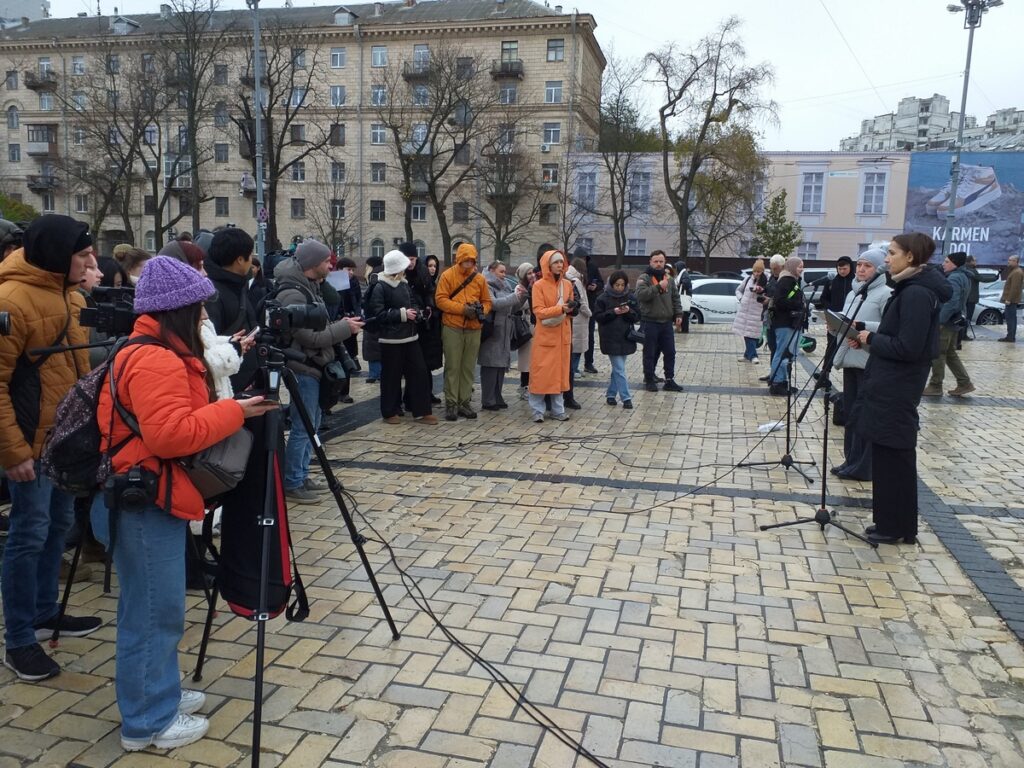
“The world is unfair, but everything is within our power. Faith helps, faith that we can; we can talk about people who are now in captivity, who are very sick now, who cannot drink their morning coffee, hug their relatives, kiss their relatives, and be close to them. Let’s talk about it as much as possible, believe, pray that every day there will be fewer and fewer such chairs, and that in the future they will not exist at all,” urged the ambassador of the event, Roman Yasinovskyi, who is one of the heroes of the joint poetic project of the Center for Civil Liberties and Foundation of Kateryna Osadcha “Hold on! I’m holding on!”
“Each political prisoner or prisoner has his landscape outside the window, sometimes he doesn’t even have one because there are often no windows in the prison,” said the former imprisoned journalist, Deputy Chairman of the Mejlis of the Crimean Tatar People, Nariman Celal.
“Prisoners are kept in basements, where they cannot hear the outside world or breathe fresh air. The focus of life becomes very narrow when you are behind bars. Supervisors try as much as possible to isolate a person from getting any true information. But it happens that the strength of our desire and our desire to convey at least a message to a person breaks through the meter-thick walls of russian camps and prisons. This is very important to do. I’m sure they know there that we support them. When you’re incarcerated, any information about being remembered and reminded of you helps and shines through the thin thread of light you hold on to. A thread that leads you to the exit,” said Nariman Celal.
During the action on Sofiyivska Ploshcha Square in Kyiv, relatives, friends, and colleagues told the stories of missing, arrested, and imprisoned Ukrainian writers, journalists, artists, and human rights defenders.
Oksana Mykhalevych, the lawyer for the parents of the journalist Dmytro Khyliuk, who was kidnapped by the russians, told his story: “Dmytro and his father were detained near their home in the village of Kozarovychi, in the Kyiv Region. They were kept in inhumane conditions; they slept directly on the floor and were covered with paper, and they were not fed. A few weeks later, the russian military released Dmytro‘s father and said that Dmytro himself would be released only after the “victory” of the occupiers, which they were sure. Later, Dmytro was taken to Belarus and then to russia. Where he is now is unknown because he is constantly being transported. The ministry of defense of the russian federation has already confirmed the fact of Dmytro‘s detention, and we are doing everything we can to release him.”
Many people took part in the event, in particular, relatives, relatives and colleagues of the prisoners. They told the stories of the missing people to report prisoners and Ukrainian prisoners. Among the participants of the action was a woman who keeps in touch with Volodymyr Dudka. In November 2016, in Sevastopol, russian security forces detained Dmytro Shtyblikov, Oleksii Bessarabov, and Volodymyr Dudka, accusing them of “preparing sabotage on the order of Ukrainian intelligence.” In 2019, Dudka and Bessarabov were sentenced to 14 years in prison. After the full-scale invasion, the woman corresponded with Dudka. Then, it became impossible because our post office stopped cooperating with russia. “Now I’m also writing through the “Letters to a Free Crimea” initiative, but I can’t get a response from him, so I don’t know if he gets these letters or not. I want to believe that they are coming,” says the woman.
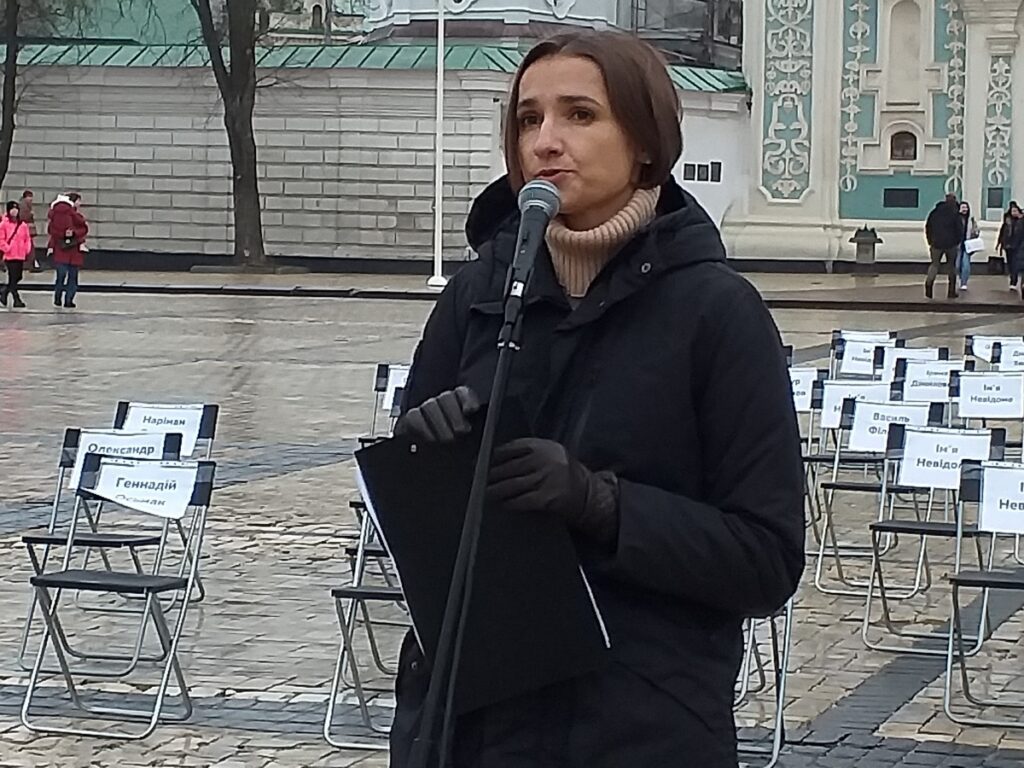
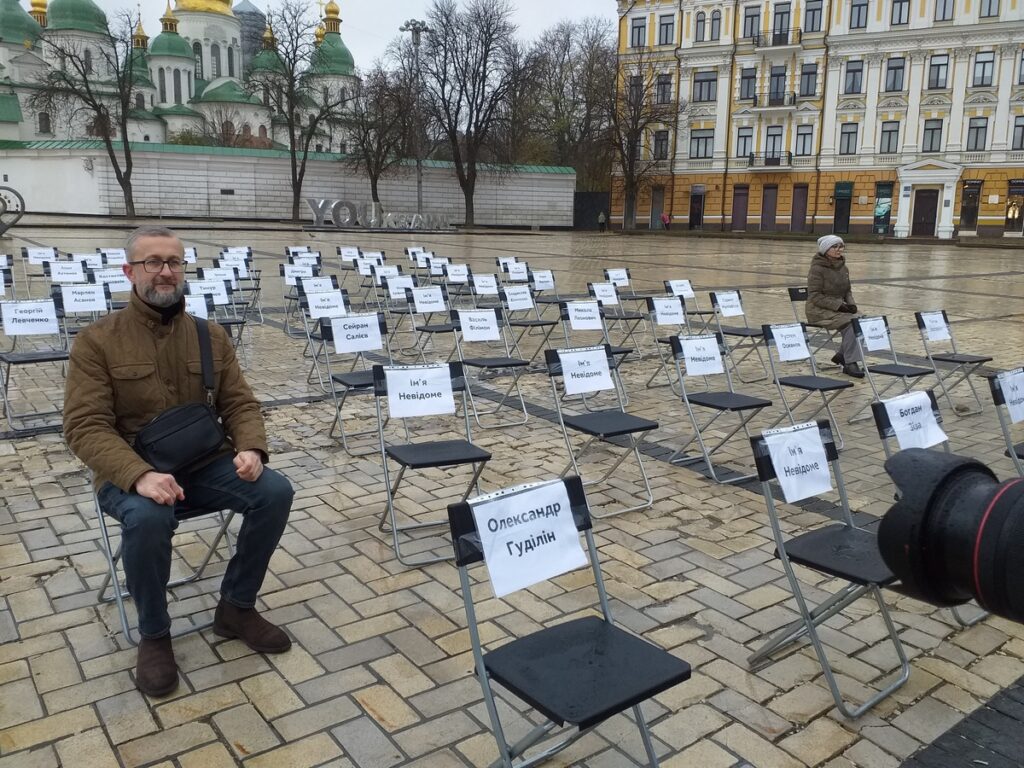
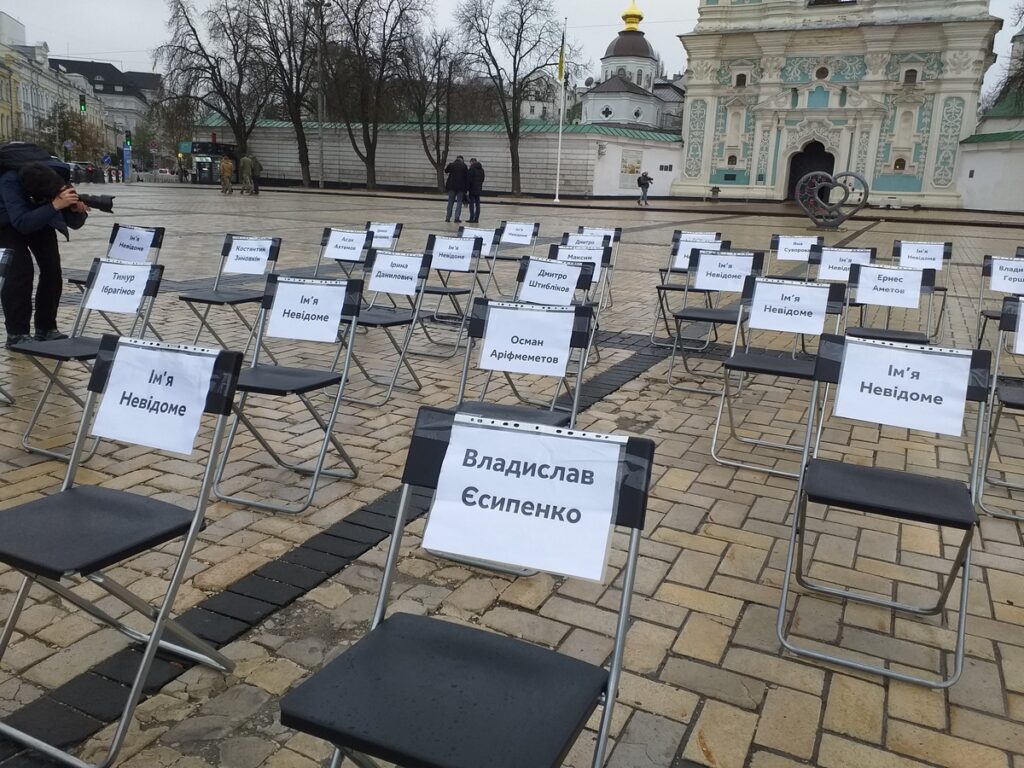
About three dozen journalists remain imprisoned in russia. On October 15, Ukrainian journalists began collecting signatures for a statement calling on the UN, OSCE, PACE, and the International Committee of the Red Cross to take active action in connection with the murder of Ukrainian journalist Viktoria Roshchina in russian captivity.
“International institutions with mandates to protect human rights must act decisively and immediately. We call on international organizations to take urgent measures to check the condition and protect the rights of civilian Ukrainian journalists who are currently in captivity in the russian federation,” the statement reads. The initiative of colleagues was supported by the IFAP National Committee (Information for All), whose head, Olha Herasymiyuk, sent a call to UNESCO to investigate the crime committed against Viktoria Roshchina. The appeal emphasizes that the recent tragedy concerns the safety of all journalists who continue to carry out their mission.
According to the National Union of Journalists of Ukraine (NUJU) and the International Federation of Journalists, russia has so far killed at least 104 media workers. Of them, 77 were mobilized to the ranks of the Armed Forces. Eighteen died while performing their professional duties. Russia specifically targets journalists on the battlefield because it is afraid of the truth.
According to the Crimean Solidarity non-governmental organization, a significant share of captured journalists belongs to Crimean media workers. These are Seyran Saliev, Marlen Asanov, Timur Ibrahimov, Server Mustafayev, Osman Arifmemetov, Remzi Bekirov, Amet Suleymanov, Ernes Ametov, Aziz Azizov, and Rustem Osmanov, Vilen Temeryanov, Ruslan Suleymanov, Rustem Sheikhaliyev, Asan Akhtemov. Citizen journalist Iryna Danylovych and freelancer Krym.Realii Vladyslav Yesypenko are being held captive by the occupiers.
Former illegally imprisoned Liudmyla Huseinova, citizen journalist and human rights defender, who was imprisoned in the Donetsk prison, Isolation, from October 2019 to October 2022, also took part in the action. Liudmyla Huseinova and Nariman Celal took their chairs at the end of the action, removing the signs from them – the Ukrainian journalistic community was replenished with two dismissed journalists; the time will come, and the rest will be dismissed.

NUJU Information Service

 THE NATIONAL UNION OF
JOURNALISTS OF UKRAINE
THE NATIONAL UNION OF
JOURNALISTS OF UKRAINE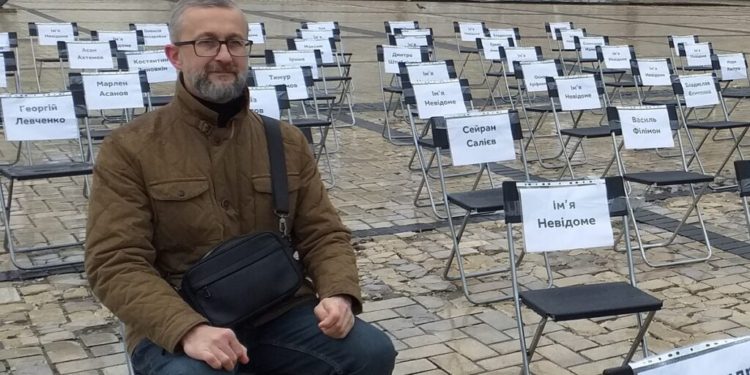
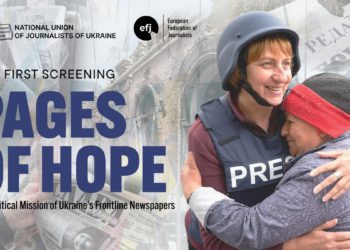

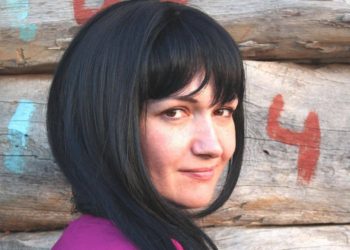













Discussion about this post